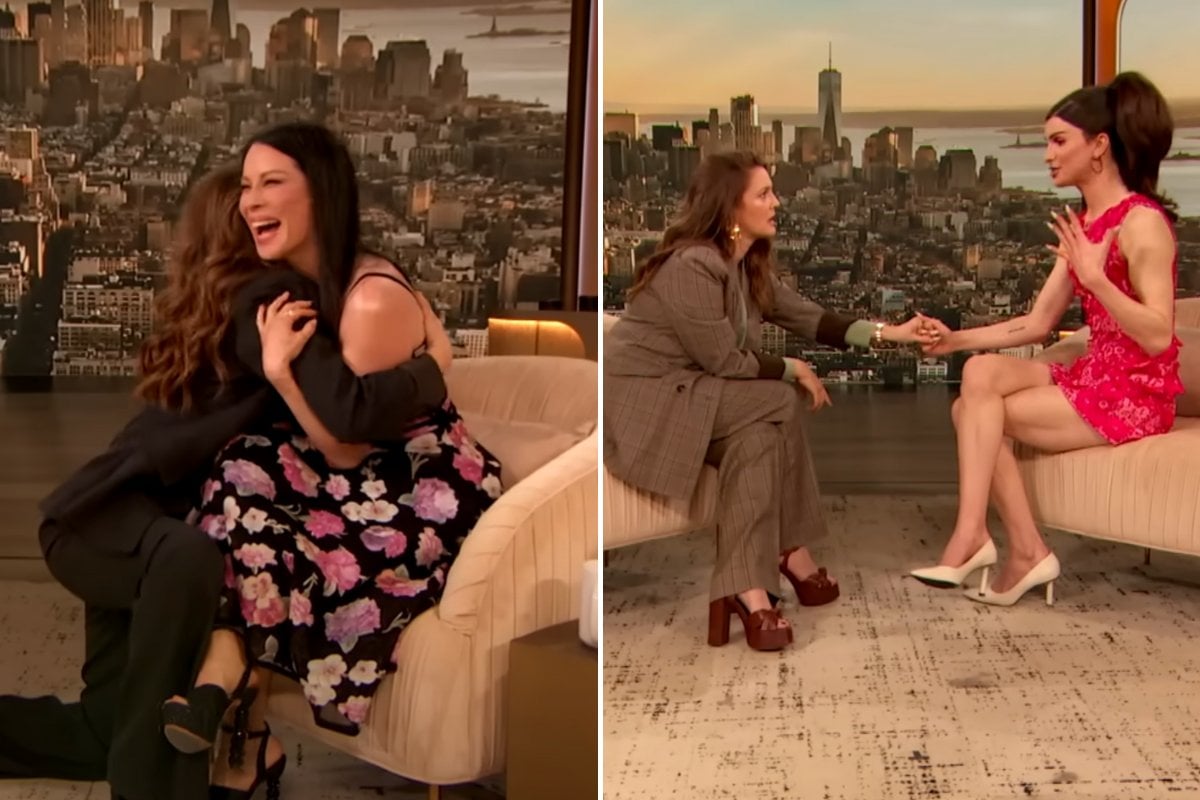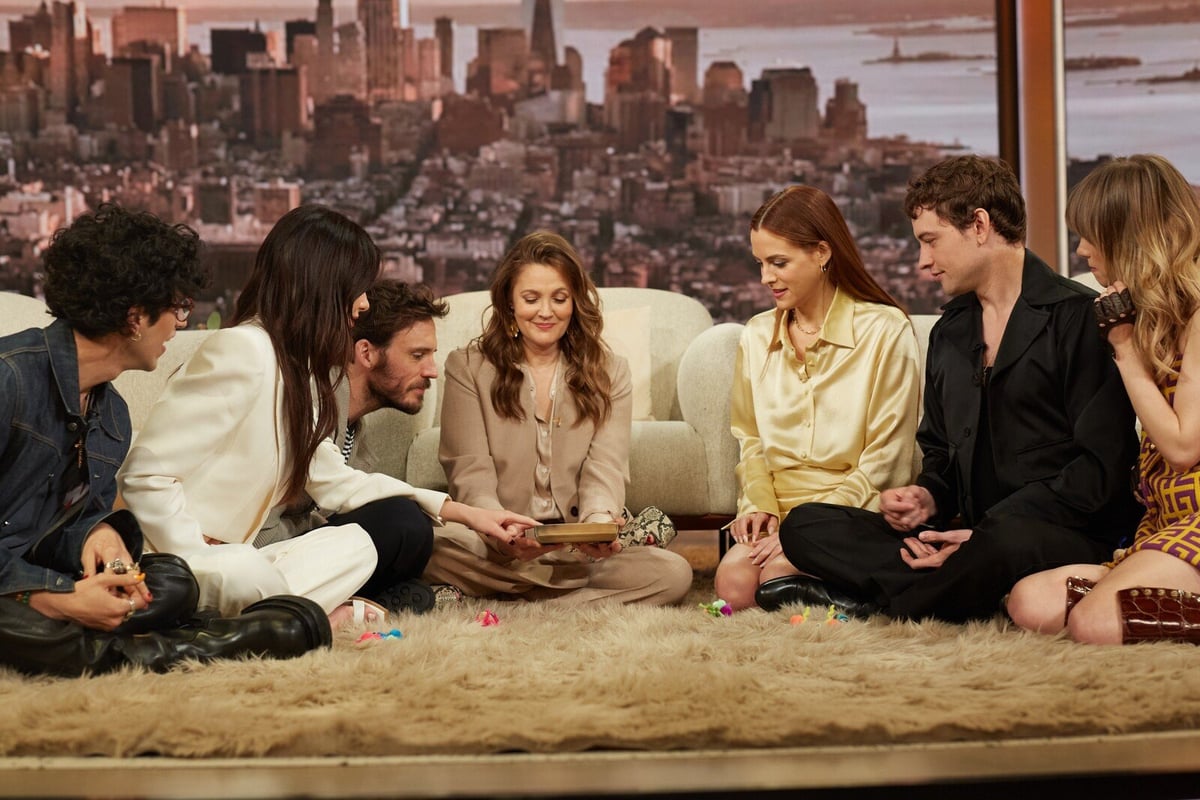
I love Drew Barrymore, and I've been loving her for a long time. Like most 80s kids, ET is my first memory of Barrymore: vulnerable, earnest, lispy and adorable. But it was Firestarter that got under my skin and stayed there. What kid doesn't want to see another kid create fire from the sheer power of her rage?
Barrymore is only a few years older than me, and all my favourite performances of hers (from Boys On The Side to The Wedding Singer) portray her as the embodiment of your friend's older sister who doesn't mind you hanging out in her room and rifling through her closet. There is a genuine humanity to Barrymore that I imagine is rare in her cohort: adults who have been famous since they were children, breathing rarified air from birth with the scars to prove it.
So, If I love Drew Barrymore so much, why do I find her interview style so uncomfortable?
On her eponymously titled talk show, Barrymore epitomises the height of our collective emotional progress. This feels rare at a time when we are regressing ever further into our silos, with 'culture wars' and a crisis of trust in the media polarizing us across party lines.
There is almost nothing on the free-to-air mainstream sphere that is innocuous, let alone wholesome, and yet Barrymore is trauma-informed, vulnerable, and endearingly offbeat. She crafts her questions from a place of empathy and in the voice of someone who has clearly done a lot of deep healing inner work.
Take, for example, Barrymore's recent interview with Trans-activist and TikTok sensation Dylan Mulvaney. The interview begins in a more standard fashion; the two sitting on their own chairs while Barrymore proceeds to create space for the necessary vulnerability that comes with Trans stories in the mainstream media at a time of deep divisions and debate.































































































